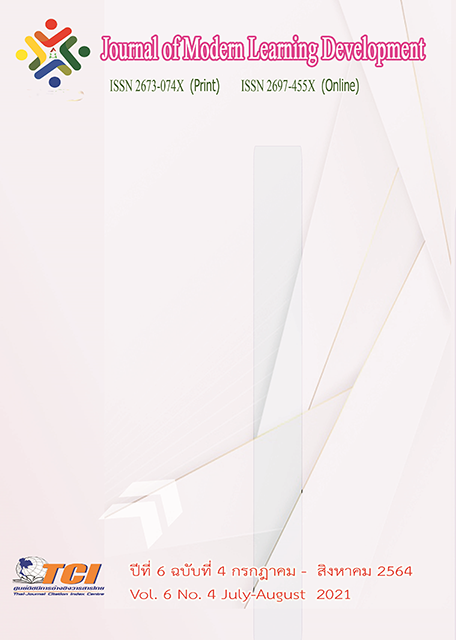A Concept of Human Capital : Contemparary Economic and Buddhist Philosophy Persapective
Main Article Content
Abstract
This Article of Research is the A concept of human capital : contemporary economic and Buddhist philosophy perspectives. The content of the study is divided into 3 parts; namely, the perspective of contemporary economic theory, the viewpoint of the Buddhist philosophy and the comparative analysis of both views. Methodology is qualitative research methods (Qualitative Research) focuses on documentary research using the principles of content analysis (Content Analysis) and summarize the qualitative research results.
The research results according to the first objective, it was found that the inherent capital and the capital are generated by several factors including education, training, family training, health and government policy. These together would result in knowledge, skills, ability, work experience or production to become expertise and give a greater production efficiency and increased income.
The research results according to two objectives found that Through the lens of Buddhist philosophies, the development of human capital is based on the threefold Learning (Sikkha) in which is stimulated by the method of (Sammaditthi) (Right View). There are two important components of the external environment known as Paratoghasa is Kalyanamitta (having good friend) and the internal factor called Yonisomanasikara. These two parts of human capital can be developed towards the benefit (egotism), the Lokavisaya and the Lokuttara. Vision. The process begins with the study of Sikkha to have goodness in oneself and society (Adhisila-sikkha), training, critical thinking (Adhicitta-sikkha), followed by the study of problem solving (Adhipanna-sikkha).
And The research results according to three objectives found that the process of stimulating the capital that exists in nature, is linked to the capital that must be continuously educated and trained, will enable human potential to be developed to reach the destination of Importantly, both themselves have developed capacity for life's activities and society benefits effectively. The controversial goal of human capital is based on the viewpoints of contemporary economic theory. Human capital will have a strong focus on occupational practice as a Middle Way Leading to the ultimate true Buddhist philosophy, Nirvana.
Article Details
References
บุญทัน ดอกไธสง. (2551). การจัดการทุนมนุษย์ Human Capital Management. กรุงเทพมหานคร: พิมพ์ตะวัน.
ประทุม อังกูรโรหิต. (2553). พระมหาประณิธานของพระโพธิสัตว์ข้อโต้แย้งทางปรัชญาของฌินรัน(Shinran’Philosphical Arguments for the Primal Vow). กรุงเทพมหานคร: โรงพิมพ์แห่งจุฬาลงกรณ์มหาวิทยาลัย.
พระพรหมคุณาภรณ์ (ป.อ.ปยุตฺโต). (2551). พจนานุกรมพุทธศาสตร์ ฉบับประมวลธรรม. (พิมพ์ครั้งที่ 17). กรุงเทพมหานคร: โรงพิมพ์มหาจุฬาลงกรณมหาวิทยาลัย.
ปรีชา เปี่ยมพงศ์สานต์. (2563). ธัมมิกเศรษฐศาสตร์ ปรัชญาเศรษฐศาสตร์ สังคมของชาวพุทธ. กรุงเทพมหานคร: โรงพิมพ์มหาวิทยาลัยขอนแก่น.
เสกสรร สนวา.(2563). กระบวนทัศน์การพัฒนาทรัพยากรมนุษย์ชุมชนสู่ความยั่งยืน. มหาสารคาม: โรงพิมพ์มหาวิทยาลัยราชภัฏมหาสารคาม.
อี.เอฟ.ชูเมกเกอร์ เขียน สมบูรณ์ ศุภศิลป์ แปล. (2007)..Small is Beautiful จิ๋วแต่แจ๋ว. กรุงเทพมหานคร:เคล็ดไทย.


